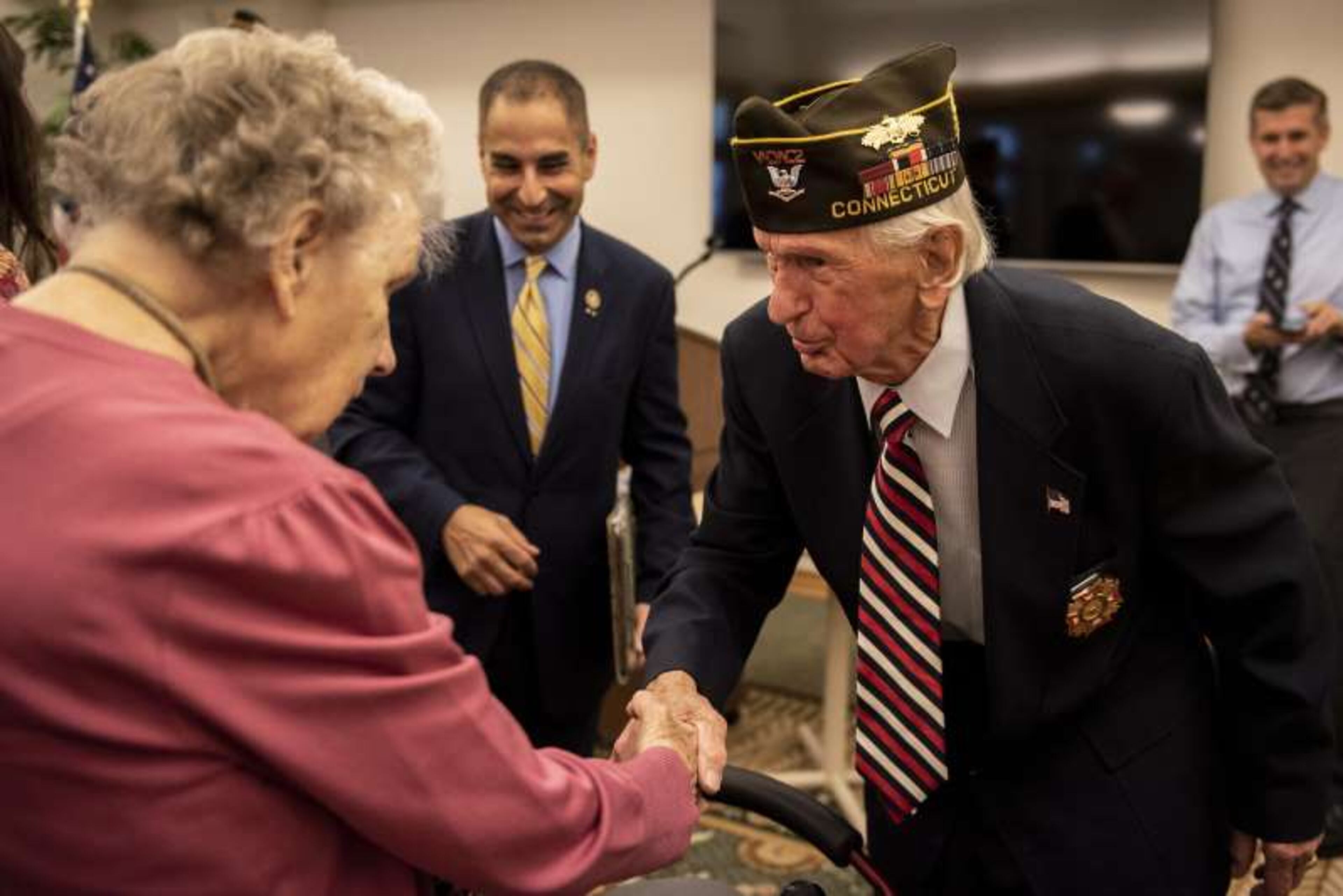Ceremony recognizes World War II nurses as heroes
Alice Johnson and Irene Wilks Walker were teenagers, just graduated from high school, when they each enrolled in the US Cadet Nurse Corps.
Much like their male counterparts who enlisted to serve their country in the years after the attack on Pearl Harbor, Johnson and Wilks Walker were prepared to serve at home or abroad, to follow orders wherever they led.
The Cadet Nurse Corps operated from 1943 to 1948, when the country worried about a shortage of nurses. The nurses, the vast majority of them women, served in war hospitals overseas and in civilian hospitals in the U.S. The nurses who served in the country filled a massive need — by the end of World War II, it's estimated that 80% of civilian nurses were cadet nurses.
But unlike their male counterparts, cadet nurses such as Johnson and Wilks Walker have never been recognized as veterans.
Now, they have been given a piece of that long-deserved recognition.
In a ceremony at McLean, a retirement community in Simsbury, state Sen. James Maroney, state Rep. John Hampton and Department of Veterans' Affairs Commissioner Thomas Saadi presented Johnson with a citation honoring her service. They presented a posthumous citation for Wilks Walker, who died in 2000, to her husband, Ben Walker.

Johnson is a Simsbury resident, and Wilks Walker lived in Simsbury for many years before her death.
The citations were also a nod to an ongoing national conversation. In June, the state House of Representatives passed the Senate's joint resolution urging the federal government to recognize cadet nurses as veterans.
On the national level, Congress is discussing the topic under a Senate bill. The bill, introduced by Sen. Elizabeth Warren (D-Mass.), would acknowledge cadet nurses' veteran status and would allow them to receive both honorary medals and burial benefits. The bill would not give cadet nurses access to other military benefits such as health care coverage.
In April, the Senate bill was referred to the Committee on Veterans' Affairs.
The state's recognition of Johnson and Wilks Walker — and the pending recognition from the federal government — comes decades after their actual service.
Johnson, now 95, was 17 when she started in a Cadet Nurse Corps training program on Staten Island. Her three years of training sent her to hospitals both on Staten Island and Long Island, and she later worked at hospitals approved by the corps, she said.
Ben Walker, now 93, said his wife was 18 when she joined the Cadet Nurse Corps training program at New Britain General Hospital in 1944.
But Wilks Walker, as with a number of other young women, was going through her training when World War II ended in 1945.
The timing doesn't downgrade Wilks Walker's commitment, Ben Walker said. She signed up to serve her country, as did many of their high school classmates.
"That was the thing to do," Ben Walker said. The saying went that "the class of '44 goes to war."
Both Ben Walker and Johnson's late husband, Norman Johnson, also enlisted. But they've been honored for their service from the time they were active-duty.
Ben Walker said that, alongside Hampton and other state officials, he's long been advocating for official recognition of his late wife and other cadet nurses.
"We've been working on this quite a while," he said.
Johnson said she didn't anticipate the recognition she received. Even after hearing she would receive a citation, she thought the document might be mailed to her instead of presented at a formal ceremony.
"This is an honor I did not ever expect," Johnson said.

